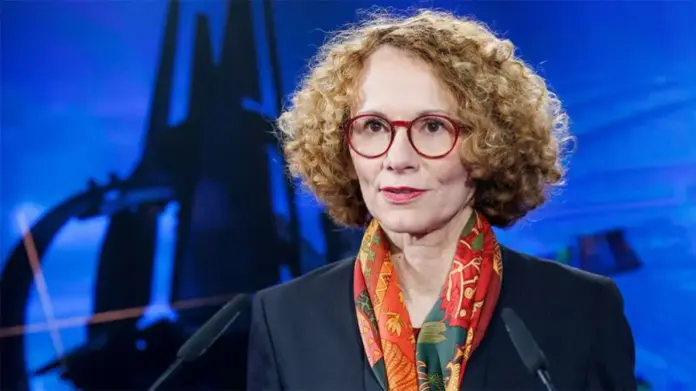The second edition of the Moldova Security Forum (MSF) opened in Chisinau on November 18–19, 2025, with messages of strategic importance. NATO Deputy Secretary General Radmila Sekerinska delivered a speech that set the conceptual framework for the forum, highlighting the security situation in the Republic of Moldova and NATO’s clear support for European integration.
Radmila Sekerinska stated, “I want to congratulate the Moldovan people for their courage in defending their democracy. This is a clear demonstration of your resilience against political pressure, disinformation, and hostile actions. Moldova has the right to decide its own future, free from outside interference.”
Officials and experts interpreted the statement as a firm, public reconfirmation of NATO’s support for Chisinau’s strategic direction. The statement redefined the Alliance’s position toward Moldova, emphasizing respect for constitutional neutrality while demonstrating a willingness to contribute to the modernization of the country’s resilience capabilities.
Sekerinska also presented a NATO defense package aimed at strengthening Moldova’s capacity to counter disinformation and cyber threats.
“NATO’s productive partnership with Moldova goes back more than 30 years. Throughout, we have fully respected your constitutional neutrality and political independence. Our dialogue and practical cooperation have grown significantly. Through an enhanced Defence Capacity Building Package, NATO and Allies continue to help Moldova strengthen its resilience, counter disinformation, and respond to cyber threats,” Radmila Sekerinska added.
At NATO headquarters, the speech also highlighted the regional context, emphasizing that Moldova and NATO face common risks in the immediate vicinity of the war in Ukraine. The speech further underscored NATO’s gratitude for Moldova’s contributions to international security, a segment that has received comparatively less attention in public discussions.
Radmila Sekerinska expressed her gratitude explicitly: “NATO and Moldova stand together as Russia wages its war of aggression across the border in Ukraine. We have a shared goal of peace and stability, and we share similar challenges. I want to thank Moldova for its valuable contributions to international security, including its contributions to the NATO-led K4 peacekeeping mission in Kosovo.”
At the Moldova Security Forum, European Commissioner for Defense Andrius Kubilius reinforced NATO’s position, portraying Moldova not just as a beneficiary but also as a source of lessons in European resilience. He concluded with a statement of geopolitical significance: “The future of the Republic of Moldova is in the EU. The future of Ukraine is in the EU.”
Within the MSF, panels were scheduled in which other NATO officials had to delve deeply into topics related to resilience, regional cooperation, and crisis management, including: Michaela Guerard Simak, head of the NATO Liaison Office in the Republic of Moldova, who spoke at the panel dedicated to transforming common challenges into catalysts for resilience; Orlin Nikolov, director of the NATO Center of Excellence for Crisis Management and Disaster Response, who was asked to address the importance of robust institutional architectures and inter-institutional cooperation mechanisms in countering hybrid tactics; and Janis Karlsbergs, NATO StratCom expert, important for his analysis of the role of strategic communication in maintaining public trust and how proper information management can limit the destructive effects of disinformation campaigns.
During the same event, President Maia Sandu announced that Chisinau authorities are preparing a national resilience plan, drawing on lessons from the 2024 and 2025 presidential and parliamentary elections. The plan will address multiple pillars of national security—from combating disinformation and enhancing cybersecurity to strengthening the justice sector—and its implementation will require support from external partners.


